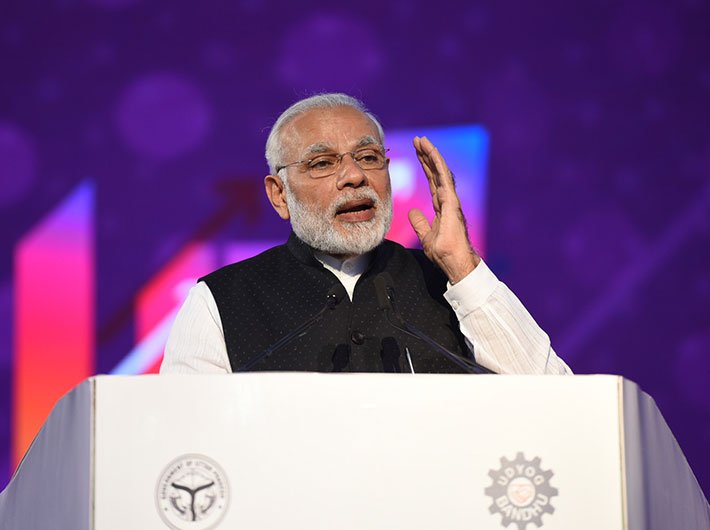Just a few months before the Lok Sabha elections of 2004, the BJP had held its national executive in Hyderabad to chart out the future course of action. Telugu Desam Party (TDP) chief N Chandrababu Naidu was then the chief minister of Andhra Pradesh. He was at the peak of his popularity as a "cyber CM" and had a certain flamboyance that literally intimidated friends and foes alike.
His shadow loomed large even on the BJP's national executive and Naidu was in the habit of making good use of any opportunity for public relations. Knowing fully well that the national media would be in attendance in Hyderabad to cover the BJP event, Naidu sent out a message that he would come to address the media. Needless to point out, Naidu hogged the limelight at the expense of the BJP executive, much to the chagrin of party strategists.
This awe for Naidu and his flamboyance was the touchstone of the coalition between the two parties. Ever since Naidu joined the NDA in 1998, he had a unique leverage with the BJP leadership, particularly with prime minister Atal Bihari Vajpayee and home minister LK Advani. Both of them were quite indulgent towards him with the belief that BJP was constricted by its ideological limitation to go across the Vindhyas and make inroads in southern India. Moreover, the BJP in those days had a president in M Venkaiah Naidu who too was overawed by Naidu.
Chandrababu Naidu used the BJP’s perceived vulnerability to the hilt and always exploited the situation to his advantage. Remember the manner in which Chandrababu arm-twisted Venkaiah Naidu to grant the maximum share of food grains to Andhra Pradesh even at the expense of other states. Similarly, in the corridors of power, his method of extracting the maximum benefits from the NDA coalition government was the stuff of legend.
Back then, Narendra Modi was not a big leader as he had just taken over as the chief minister of Gujarat in 2001 and his image was sullied in some quarters by the post-Godhra riots. But Modi had keenly watched the manner in which Naidu had often been coercing the BJP leadership to fall in line in the name of the coalition even if it caused damage to the organic growth of BJP in the state. Since Modi was not in a leadership role, he did not come in the way of the party leadership’s self-limiting perception of state politics.
In playing the brinkmanship game once again now, Chandrababu Naidu might run the risk of mistaking the Modi-Amit Shah combine for the Vajpayee-Advani duo. Things have changed drastically. Unlike Vajpayee and Advani who were quite convinced of the party’s inability to grow in the south and had sought an alliance with regional groups, Modi and Shah outright reject any idea of such an affliction for the BJP. On the contrary, they believe in encouraging an organic and robust growth of the party which must not be encumbered by the coalition partners in certain states. This is the precise the reason why Shiv Sena, the oldest ally of the BJP, has been facing trouble in Maharashtra.
The Modi-Shah leadership is wary of the fact that the bad deeds of the alliance partners often hamper the growth of the BJP as it happened in Punjab. The party leadership has evolved a strategy not to be hampered by alliance partners’ incapacities. The Modi-Shah definition of coalition dharma is distinctly different from the good old days of the Vajpayee-Advani era.
At the same time, memories have also been playing a critical role in defining the contours of the new NDA coalition. Chandrababu Naidu is seen to be in the habit of running after minority votes as the election draws near. Even when the NDA lost elections in 2004 and he was routed in Andhra, Chandrababu blamed his alliance with the BJP for his defeat. However, the reality was starkly different. He lost it because of his sheer flamboyance that convinced him of his electoral infallibility under the image of a suave and cyber-savvy chief minister. His party, the TDP, badly lost in rural Andhra Pradesh while YS Rajasekhara Reddy of the Congress had emerged as the new hero who subdued Naidu for a major part of a decade till his death in a chopper crash in 2009.
Apparently, Naidu’s posturing comes from his own political insecurities. Given the all-around decimation of regional parties across the country, he fears that a resurgent BJP may relegate him to an extreme background position which does not align with his usual political flamboyance of the past. And if he loses the election, he would run the risk of being a relic and be replaced by a new genre of politicians in Andhra Pradesh. The Modi-Shah duo may just have called his bluff this time. Their steadfast refusal to bend to his demands seems to show they have a plan for Andhra without Naidu.
[This comment has first appeared on FirstPost.com.]

